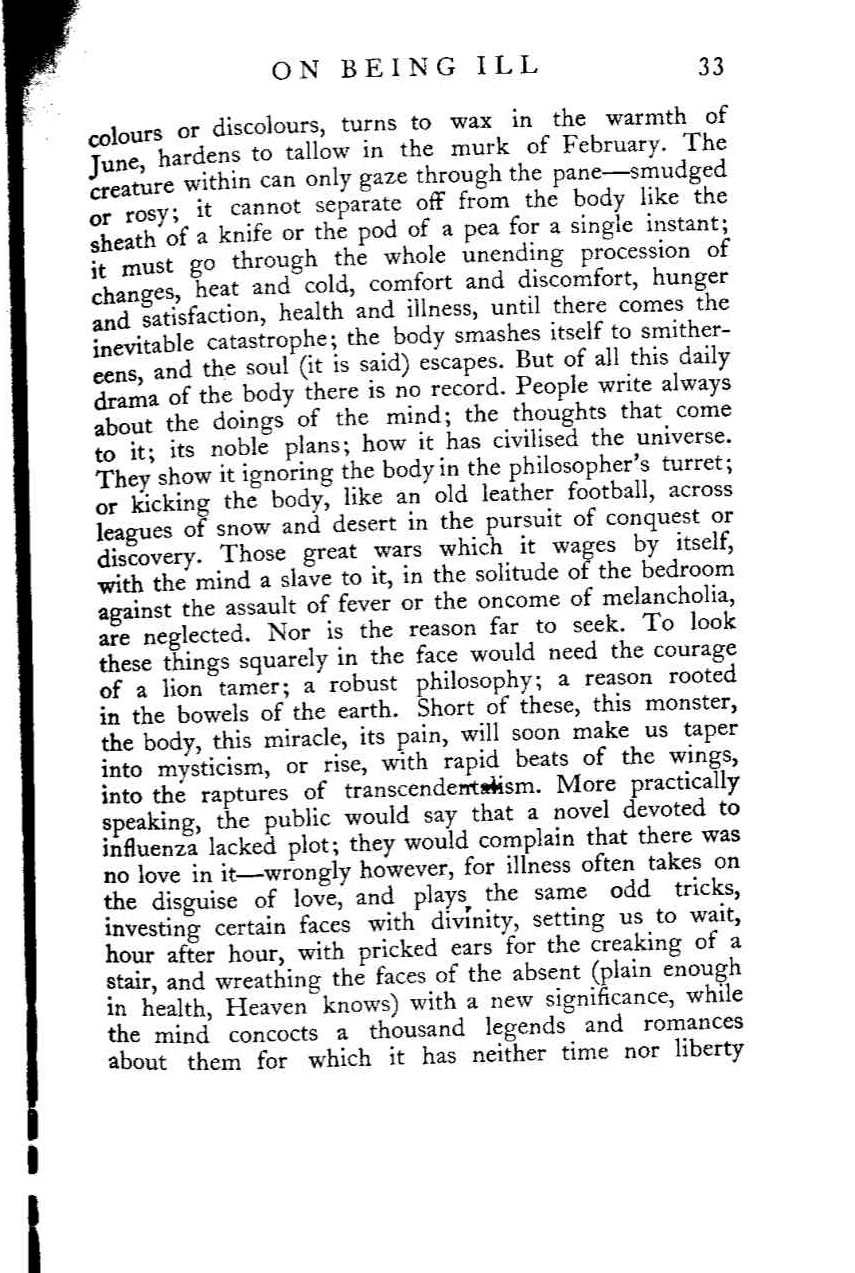
colours or discolours, turns to wax in the warmth of
June, hardens to tallow in the murk of February. The
creature within can only gaze through the pane—smudged
or rosy; it cannot separate off from the body like the
sheath of a knife or the pod of a pea for a single instant;
it must go through the whole unending procession of
changes, heat and cold, comfort and discomfort, hunger
and satisfaction, health and illness, until there comes the
inevitable catastrophe; the body smashes itself to smither-
eens, and the soul (it is said) escapes. But of all this daily
drama of the body there is no record. People write always
about the doings of the mind; the thoughts that come
to it; its noble plans; how it has civilised the universe.
They show it ignoring the body in the philosopher's turret;
or kicking the body, like an old leather football, across
leagues of snow and desert in the pursuit of conquest or
discovery. Those great wars which it wages by itself,
with the mind a slave to it, in the solitude of the bedroom
against the assault of fever or the oncome of melancholia,
are neglected. Nor is the reason far to seek. To look
these things squarely in the face would need the courage
of a lion tamer; a robust philosophy; a reason rooted
in the bowels of the earth. Short of these, this monster,
the body, this miracle, its pain, will soon make us taper
into mysticism, or rise, with rapid beats of the wings,
into the raptures of transcendentalism. More practically
speaking, the public would say that a novel devoted to
influenza lacked plot; they would complain that there was
no love in it—wrongly however, for illness often takes on
the disguise of love, and plays the same odd tricks,
investing certain faces with divinity, setting us to wait,
hour after hour, with pricked ears for the creaking of a
stair, and wreathing the faces of the absent (plain enough
in health, Heaven knows) with a new significance, while
the mind concocts a thousand legends and romances
about them for which it has neither time nor liberty






